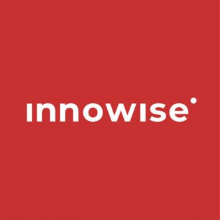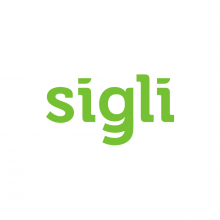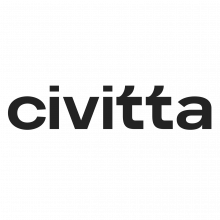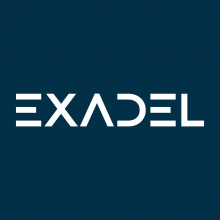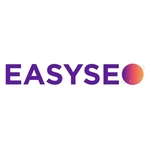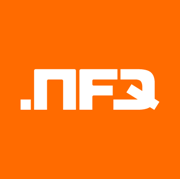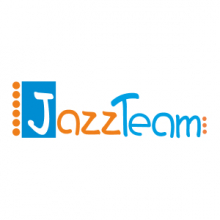
There are 18 Companies in Lithuania
that provide Angular Development Services!
Lithuania's ICT sector is evolving, full steam ahead. An increasing number of companies have arrived in the country, drawn by its infrastructure, people, and business-friendly mindset. With some of the fastest and most affordable internet connections in Europe and a tech-savvy population ranking 16th in the world for ICT skills, Lithuania has recently attracted giants such as Google.
Discover Top IT Companies in Lithuania specialized in Angular and other related services. Find the best IT service providers for your projects.
Angular (formerly AngularJS) is a popular open-source web application framework maintained by Google and a community of developers. It's used for building dynamic, single-page web applications (SPAs) and web-based applications in general. Angular provides a structured and organized way to create complex web applications by extending HTML with additional features and enabling the development of interactive, responsive, and maintainable front-end web interfaces.
Handpicked companies • No obligation to hire • 100% risk-free
Featured Companies in Lithuania
This month, the following Angular Development companies managed to provide an outstanding service and support. It's worth taking a look.
Lending Software for Banks, Alternative Lenders, & Fintechs
IT Staff Augmentation & Tech Recruitment Services: JayDevs helps you skip the sourcing, job ads, and resume screening.
Explore Top Angular Development Companies in Lithuania
SaM Solutions is an international provider of IT services and software solutions with over 30 years of experience.
Altabel Group is an outsourcing IT company providing software development and consulting services.
SEO and Advertising Agency
Services:
Digital Perfection In Every Bit
Agile Engineering Services with focus on Java, JavaScript, Test Automation, CI/CD
We transform ideas into software products.
Filter Angular Development Companies in Lithuania by Cities
Find the right tech company near you or from a specific city. Some of the best companies might be located in smaller cities.
Find more Angular Development companies around the world
TechBehemoths is the world's most advanced and user-friendly platform to match IT Companies with real clients without hustle.
The ICT in Lithuania: Overview and Companies Data
In the past 10 years, Lithuania has developed its IT industry and infrastructure. Projects like e-Lithuania, e-residency, and VR Lithuania, among others, transformed the country into a fully digitalized hub in the Baltic region.
The IT Services sector itself plays an important role in the Lithuanian economy, registering a revenue of almost $500 million in 2025. Also, ~4.0% of the entire Lithuanian workforce is enrolled in the IT industry, for those 4200+ digital companies that export their services in 130 countries.
Why Work With Lithuanian IT Companies
Essential e-solutions in Lithuania that enable the digital society to function smoothly were all built by local Lithuanian companies. This enhances the reliability of Lithuanian IT companies not only locally but also worldwide - about this, we will relate a bit later.
The already built digital system in Lithuania already tells a lot about Lithuanian IT companies that perform excellently, and are becoming more and more attractive not only for companies but also for skilled professionals who are enjoying preferential conditions.
So, after all, why should you work with Lithuanian IT companies?!
- Skilled workers who provide high-level digital services
- Open market - that facilitates and eases access to IT resources and companies' services
- Low taxes - compared with other European countries, Lithuania helps local IT and tech companies generate sales by cutting taxes, which can reflect a lower price/project for the end customer.
- A healthy business environment and well-established communication between businesses are assured.
What You Should Pay Attention to When Working With Lithuanian IT Companies
However, working with Lithuanian IT companies can also be tricky. Even though the post soviet reminiscences are not visible, you still can hit Russian Lithuanians that are providing the same IT services, but of a relatively lower quality, and in a very specific manner. Roughly, some of the companies are only benefiting from the developed IT environment in Lithuania, but don’t follow the same guidelines as the vast majority of companies do.
Another challenge is the limited human resources that Lithuanian companies have. The country’s population is just above 2.8 million people, and 6% of it is simply not enough to cover all market demands, so it would be difficult to find an available IT company based in Lithuania to take on a big project or so.
How Developed is the Lithuanian IT Infrastructure
Lithuania ranks among the top European countries with the highest IT infrastructure. As mentioned previously, its digital transformation made the country one of the regional innovation leaders. But even so, the country is still not done yet with developing its IT capabilities.
How Does the Lithuanian IT Industry Perform Compared to the Neighboring Countries?
In the Baltics, Lithuania is a detached leader in IT. Latvia and Estonia are behind simply because they focused on developing other sectors. But the Lithuanian performance is also motivated by people’s attachment to digital technologies. The continuously growing number of digital agencies confirms once again that Lithuania ranks better than neighboring countries.
But speaking about Lithuania as an extension to Europe’s northern region, the country is in tight competition with Latvia and Estonia, which also find themselves somewhere in the first half of the European IT community.
Compared with those two countries, Lithuanian companies will rather provide lower prices for their IT and digital services and products, but at the same time, Lithuania has way more limited resources than Estonia or Finland.
All in all, Lithuania is a great country to consider for digital projects, and local companies' rich experience with digital transformation can make a difference in their projects.
Lithuania's Tech in 2025 - Update
Considering the progress Lithuania has made throughout the last 3 years, it is no wonder that 2022 will be another good period for the ICT and, especially, local IT companies. Lithuania is abundant with news and tech-related events meant to encourage startups and entrepreneurship. As a direct result of continuous efforts invested in ICT, Lithuania got the #10 global position in FinTech and has over 42K ICT specialists employed in the tech sector as of December 2021.
In 2025, the tech sector in Lithuania is experiencing major growth with the help of startup funding, with 167.7 million euros raised. The ICT sector contributes 5.4% to GDP through exports, especially to the US and the UK.
What is Angular and what are its benefits for your projects?
Angular (formerly AngularJS) is a popular open-source web application framework maintained by Google and a community of developers. It's used for building dynamic, single-page web applications (SPAs) and web-based applications in general. Angular provides a structured and organized way to create complex web applications by extending HTML with additional features and enabling the development of interactive, responsive, and maintainable front-end web interfaces. Here are some key aspects and concepts of Angular:
-
Component-Based Architecture
-
Templates
-
Directives
-
Dependency Injection
-
Services
-
Routing
-
Observable and RxJS
-
Modules
-
Testing
-
Cross-Platform
Angular's structured approach, strong tooling, and vibrant ecosystem of libraries and extensions make it a powerful framework for building modern web applications. It is particularly well-suited for large and complex projects where maintainability and scalability are crucial.
Companies may choose Angular over other front-end frameworks for their projects for a variety of reasons, depending on their specific needs and priorities.
-
Google Backing: Angular is developed and maintained by Google. This association often gives companies confidence in its long-term support, stability, and continuous improvement. Google's involvement is seen as a sign of reliability and commitment to the framework.
-
Mature and Established: Angular has been around for a while and has a strong track record of being used successfully in large-scale enterprise projects. It has a well-defined architecture and best practices, which can be beneficial for maintaining and scaling applications over time.
-
TypeScript Support: Angular is built with TypeScript, a statically-typed superset of JavaScript. TypeScript provides better tooling, code maintainability, and catches errors at compile time, which can reduce bugs and enhance code quality, making it attractive to companies that prioritize robust code.
-
Full-Featured Framework: Angular provides a comprehensive set of tools, libraries, and features out of the box, including routing, form handling, HTTP client, and more. This can save development time and effort compared to integrating multiple third-party libraries in other frameworks.
-
Two-Way Data Binding: Angular offers powerful two-way data binding, which allows for automatic synchronization between the data model and the view. This feature can make it easier to develop interactive and responsive user interfaces.
-
Large and Active Community: Angular has a large and active community of developers and a wealth of resources, including documentation, tutorials, and third-party libraries. This can be beneficial for finding solutions to common problems and getting support when needed.
-
Enterprise-Ready: Angular provides features like dependency injection, modularity through modules, and a strong emphasis on testability. These characteristics are well-suited for building robust and maintainable enterprise-level applications.
-
Strict Coding Standards: Angular enforces a set of coding standards and best practices, which can lead to more consistent and readable code. This can be important for companies with multiple developers working on the same codebase.
-
Cross-Platform Development: Angular can be used for building both web and mobile applications. Companies looking to develop applications for multiple platforms may choose Angular for its ability to share code between web and mobile apps using technologies like NativeScript or Ionic.
-
Integration with Backend Technologies: Angular can easily integrate with various backend technologies and APIs. This makes it suitable for projects where the front end needs to communicate with different types of server-side applications.
-
Security Features: Angular provides built-in security mechanisms to help prevent common web vulnerabilities like Cross-Site Scripting (XSS) and Cross-Site Request Forgery (CSRF). This can be crucial for projects with high security requirements.
-
Ecosystem and Tooling: Angular has a rich ecosystem of tools, extensions, and IDE support, including Angular CLI for project setup and management. This can streamline development workflows and improve productivity.
Ultimately, the choice of Angular or any other framework depends on the specific project requirements, the development team's expertise, and the company's long-term goals. Companies evaluate various factors to determine which framework aligns best with their needs, resources, and priorities.

